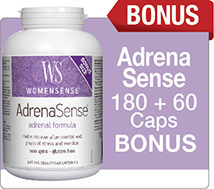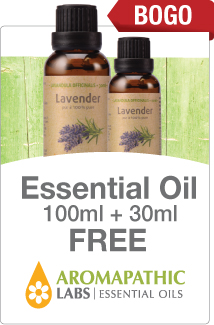Lupus
Updated Jul. 12th, 2023
Primarily affecting women, lupus occurs when the body’s own immune system attacks its own organs and tissues, causing chronic inflammation. While scarring of these tissues is often a long term consequence, fatigue and painful, swollen joints are the immediate and primary symptoms affecting those with lupus.
Lupus is an autoimmune condition, which means that the body attacks its own tissue. Its cause is unknown, but viral infection is suspected to play a role. Many with lupus go for periods of time without symptoms and then have a flare up, or “exacerbation”. Like other autoimmune conditions, lupus oscillates between exacerbations of varying severity and remissions where there are limited or no symptoms. Attacks of lupus can be exacerbated by medications like oral contraceptives, sulpha drugs or high blood pressure medications. Fatigue, stress, other viral infections and vaccinations can also precipitate attacks. Eliminating or controlling these external factors that aggravate lupus are crucial to dealing with it effectively.
There are two main forms of lupus. Discoid lupus (DLE) affects only the skin and causes rashes and small yellow lumps to form. Outbreaks disappear but leave scars. Systemic lupus (SLE) affects the whole body. It is life threatening when organs like the heart, lungs and kidneys are involved. Symptoms of SLE are arthritis, fever, weakness, weight loss, mouth sores, butterfly face rash and sun sensitivity. Other less common forms of lupus are: drug induced lupus, neonatal lupus, and lupus aggravated by other autoimmune conditions.
Conventional treatment of lupus involves many powerful drugs and has a variety of side effects. Some drugs are known to deplete vitamins and minerals. Prednisone, for example, is known to deplete minerals from your bones and often results in osteoporosis if used long term. Individuals taking medication for this condition should consult their health professional about these interactions.
Natural therapies, including diet and supplements, have been shown to lessen lupus symptoms and decrease the frequency of exacerbations but rarely cure the illness. A complete regimen of nutritional supplements for decreasing the severity and frequency of the symptoms of lupus should address each of the following: reducing the autoimmune reaction that causes lupus, reducing its symptoms (especially stress), optimizing the intake of nutrients that lupus and its conventional treatments deplete, and detoxification.
The autoimmune reaction that causes lupus is thought to occur when antibodies produced to fight a viral infection also attack the tissues of the body. Essential fats are crucial to reducing this abnormal, heightened immune reaction and its subsequent inflammation - in particular the essential fat GLA. Both EFA supplements primrose oil and borage oil contain high levels of GLA. Gama-linoleic acid is used by the body to make hormones called prostaglandins. One of these is responsible for regulating inflammatory processes and also plays a role in modulating immune system activity. GLA from primrose or borage oil helps optimize the body’s production of this specific prostaglandin and is particularly useful for helping to reduce the inflammation associated with lupus. Please see the table below for the therapeutic dosage of primrose and borage oil.
The health of the intestinal lining also plays a role for the exacerbation of autoimmune disorders, and lupus is no exception. If the intestinal lining is weakened, small perforations can form that allow undigested food particles and toxic waste matter leak out into the blood stream. This is known as leaky gut. When these particles leak out, the immune system attacks them.
In a healthy person this may lead to a mild food allergy or intolerance, but in a person with a serious autoimmune condition, it is a completely different story. As the immune system is alerted to neutralize the leaked particles, it may also attack other organs and tissues, potentially causing an exacerbation.
Therefore, it is crucial that when you have an autoimmune condition that maintain G.I. health, especially considering that many of the medications usually prescribed for lupus are particularly hard on the digestive system.
To maintain the health of your intestinal lining, use a therapeutic strength acidophilus supplement containing FOS. Glutamine, DGL and Aloe are also useful for helping the body repair damage to the intestinal lining and reducing leaky gut.
The symptoms of lupus can be reduced with several safe and effective nutritional supplements. For joint pain and swelling glucosamine sulfate plus chondroitin can help to repair joint cartilage and reduce the irritation and the damage that is done to soft tissue when the immune system attacks the joints. While this combination works for many, an alternative for others is collagen. Collagen is also effective in relieving joint pain and inflammation, but offers a different route that may be more effective than standard glucosamine and chondroitin. You might also consider the anti-inflammatory supplements devil’s claw, curcumin, Bromelain or yucca - they have all been clinically proven to reduce inflammation of the joints.
Fatigue is also a major concern for most people with lupus. Supporting the adrenal glands can make a substantial difference for relieving both fatigue and stress. Use an adrenal support formula with the herbs licorice, Siberian ginseng, ashwaghanda, and suma - they are all effective in helping optimize the functioning of the adrenal glands. The adrenal glands produce hormones that help us deal with stress effectively. When we are under consistent stress (as people with lupus often are), the adrenal glands can become exhausted, and fatigue results. You can also use adrenal gland extract along with these herbs for optimum therapeutic results. The herb St. John’s wort can help to relieve both stress and elevate mood at the same time. The stress of dealing with a chronic illness can often leave people with lupus prone to depression. You can support healthy mood with St. John’s wort along with the amino acid 5HTP. 5-hydroxy-tryptophan has been shown to elevate serotonin levels. Doing exercises like yoga and tai chi in combination with these supplements can help to further relieve stress.
Detoxification is important for every autoimmune condition. Toxins that accumulate in the body over time cause stress to our immune system and other bodily functions as our body tries to eliminate and deal with them. Toxic accumulation can aggravate an exacerbation. Follow the recommendations about for maintaining the health of your intestinal lining to prevent leaky gut. In addition, do periodic colon cleanses with fibre powders that contain accompanying herbs like slippery elm, marshmallow and licorice. This will help to eliminate re-absorption of toxins from encrusted waste matter in the intestines that would normally burden the immune system. Detoxify your liver with the herbs milk thistle, curcumin, and dandelion. Also support liver function with the amino acid NAC, alpha lipoic acid, and lecithin. Optimum liver function is crucial for your body to break down and eliminate toxins.
Dietary approaches to lupus are based on a low calorie, low fat diet. Consume lots of fresh vegetables and choose plant source proteins like legumes, seeds and nuts. Avoid the amino acid phenylalanine in meats and dairy products because it can worsen lupus symptoms. Essential fatty acids from fish and unrefined vegetable oils help lupus symptoms. Consume foods rich in vitamin C and zinc to boost the immune system. These foods include green leafy vegetables, citrus fruits and pumpkin seeds. Avoid alfalfa sprouts because they contain a toxin that produces lupus-like symptoms and can worsen existing lupus.























I also have lupus. I’m trying a few things mentioned in this article to help me with it, thank you.
My best friend's mom has had Lupus for a long time. In the beginning, it was debilitating for her. I can remember her being bedridden for days at a time. With the help of a naturopath and her GP, she's been able to control it better.
I have Lupus. With the help of my ND I have been able to regain a measure of my quality of life. Some of the things mentioned in this article I was unaware of but make perfect sense, such as, not to eat alfalfa and caffeinated beverages. I have never been able tolerate them and now I know why. And I can vouch the Bromelain, B Complex Vitamins, Probiotics and Milk Thistle have been very helpful for me.
Hello Sarah,
Thank you for sharing. We're happy to hear natural medicine and guidance from an ND have been helpful in your journey. We are always looking to empower our customers with natural health knowledge and are happy to hear you enjoyed this article. If you'd like to learn more, check out our educational videos on our Youtube channel too: http://www.youtube.com/channel/UClBjYPog9j0VY0gcIt-Tq2Q
Have a healthy day!
I have Lupus. And for a few years I have used some of these products and they really do help, but I was still quite sick. Recently I added NAC to my regimen and all I can say is WOW. What a difference it has made. My lupus symptoms are now much more manageable and my quality of life has improved.
Hello Sarah,
That is excellent! We are happy to hear your success and that you found a natural supplement to help you manage your symptoms. Thank you for your comment and learning with us. If you'd like to know more about natural health, check out our Youtube channel for many educational videos with natural health experts.
https://www.youtube.com/@NTLnutrition/featured
Stay healthy & well
I appreciated this article, having researched all the supplements which should help my Lupus. Luckily I am doing much of the advice offered here, but needed more info on L-Lysine which acts contra to Ariginine which is sometimes preferred as a benefit to Lupus sufferers. I'm sticking with Lysine as it definitely works against cold sores so it's sort of a natural decision. Basically common sense prevails and we should be adhering to an anti-inflammatory diet which usually means antioxidant also. Ginger, Apple Cider Vinegar, coconut oil, MSM, Turmeric, Lysine, etc. It all makes sense. I put lacto-calamine and zinc & castor oil on the rash. Aloe pure gel also reduces inflammation and discomfort, especially after an hour in the 'fridge.
Hello SJM,
We are glad you appreciated our article which outlines many measures that have been working for you. We hope it brought some new insight or information as to why these supplements help. As you mentioned antioxidants, if you'd like to learn more about them, you can learn more: https://www.nationalnutrition.ca/articles/supplements/antioxidants/
Have a healthy day